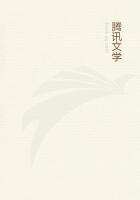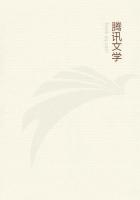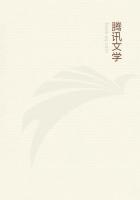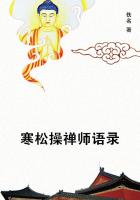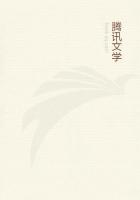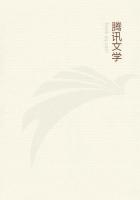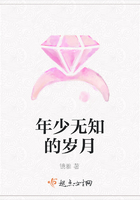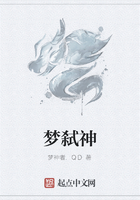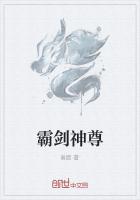At the door the old negress was nodding her head As he reach'd it. "My mistress awaits you," she said.
And up the rude stairway of creeking pine rafter He follow'd her silent. A few moments after, His heart almost stunned him, his head seem'd to reel, For a door closed--Luvois was alone with Lucile.
IV.
In a gray travelling dress, her dark hair unconfined Streaming o'er it, and tossed now and then by the wind From the lattice, that waved the dull flame in a spire From a brass lamp before her--a faint hectic fire On her cheek, to her eyes lent the lustre of fever:
They seem'd to have wept themselves wider than ever, Those dark eyes--so dark and so deep!
"You relent?
And your plans have been changed by the letter I sent?"
There his voice sank, borne down by a strong inward strife.
LUCILE.
Your letter! yes, Duke. For it threaten'd man's life--
Woman's honor.
Luvois.
The last, madam, NOT?
LUCILE.
Both. I glance At your own words; blush, son of the knighthood of France, As I read them! You say, in this letter . . .
"I know Why now you refuse me: 'tis (is it not so?)
For the man who has trifled before, wantonly, And now trifles again with the heart you deny To myself. But he shall not! By man's last wild law, I will seize on the right (the right, Duc de Luvois!)
To avenge for you, woman, the past, and to give To the future its freedom. That man shalt not live To make you as wretched as you have made me!"
LUVOIS.
Well, madam, in those words what words do you see That threatens the honor of woman?
LUCILE.
See! . . . what, What word, do you ask? Every word! would you not, Had I taken your hand thus, have felt that your name Was soil'd and dishonor'd by more than mere shame If the woman that bore it had first been the cause Of the crime which in these words is menaced? You pause!
Woman's honor, you ask? Is there, sir, no dishonor In the smile of a woman, when men, gazing on her, Can shudder, and say, "In that smile is a grave"?
No! you can have no cause, Duke, for no right you have In the contest you menace. That contest but draws Every right into ruin. By all human laws Of man's heart I forbid it, by all sanctities Of man's social honor!
The Duke droop'd his eyes.
"I obey you," he said, "but let woman beware How she plays fast and loose thus with human despair, And the storm in man's heart. Madam, yours was the right, When you saw that I hoped, to extinguish hope quite.
But you should from the first have done this, for I feel That you knew from the first that I loved you."
Lucile This sudden reproach seem'd to startle.
She raised A slow, wistful regard to his features, and gazed On them silent awhile. His own looks were downcast.
Through her heart, whence its first wild alarm was now pass'd, Pity crept, and perhaps o'er her conscience a tear, Falling softly, awoke it.
However severe, Were they unjust, these sudden upbraidings, to her?
Had she lightly misconstrued this man's character, Which had seem'd, even when most impassion'd it seem'd, Too self-conscious to lose all in love? Had she deem'd That this airy, gay, insolent man of the world, So proud of the place the world gave him, held furl'd In his bosom no passion which once shaken wide Might tug, till it snapped, that erect lofty pride?
Were those elements in him, which once roused to strife Overthrow a whole nature, and change a whole life?
There are two kinds of strength. One, the strength of the river Which through continents pushes its pathway forever To fling its fond heart in the sea; if it lose This, the aim of its life, it is lost to its use, It goes mad, is diffused into deluge, and dies.
The other, the strength of the sea; which supplies Its deep life from mysterious sources, and draws The river's life into its own life, by laws Which it heeds not. The difference in each case is this:
The river is lost, if the ocean it miss;
If the sea miss the river, what matter? The sea Is the sea still, forever. Its deep heart will be Self-sufficing, unconscious of loss as of yore;
Its sources are infinite; still to the shore, With no diminution of pride, it will say, "I am here; I, the sea! stand aside, and make way!"
Was his love, then, the love of the river? and she, Had she taken that love for the love of the sea?
V.
At that thought, from her aspect whatever had been Stern or haughty departed; and, humble in mien, She approach'd him and brokenly murmur'd, as though To herself more than him, "Was I wrong? is it so?
Hear me, Duke! you must feel that, whatever you deem Your right to reproach me in this, your esteem I may claim on ONE ground--I at least am sincere.
You say that to me from the first it was clear That you loved me. But what if this knowledge were known At a moment in life when I felt most alone, And least able to be so? a moment, in fact, When I strove from one haunting regret to retract And emancipate life, and once more to fulfil Woman's destinies, duties, and hopes? would you still So bitterly blame me, Eugene de Luvois, If I hoped to see all this, or deem'd that I saw For a moment the promise of this in the plighted Affection of one who, in nature, united So much that from others affection might claim, If only affection were free? Do you blame The hope of that moment? I deem'd my heart free From all, saving sorrow. I deem'd that in me There was yet strength to mould it once more to my will, To uplift it once more to my hope. Do you still Blame me, Duke, that I did not then bid you refrain From hope? alas! I too then hoped!"
LUVOIS.
Oh, again, Yet again, say that thrice blessed word! say, Lucile, That you then deign'd to hope--
LUCILE.
Yes! to hope I could feel, And could give to you, that without which all else given Were but to deceive, and to injure you even:--
A heart free from thoughts of another. Say, then, Do you blame that one hope?
LUVOIS.
O Lucile!
"Say again,"
She resumed, gazing down, and with faltering tone, "Do you blame me that, when I at last had to own To my heart that the hope it had cherish'd was o'er, And forever, I said to you then, 'Hope no more'?
I myself hoped no more!"

